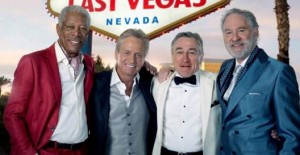The Real Story: The Man Who Inspired “Apocalypse Now”
Posted on November 4, 2013 at 3:59 pm
Francis Ford Coppola’s Vietnam story Apocalypse Now was inspired by Joseph Conrad’s book, Heart of Darkness
, about the disintegration into madness of a man who goes into the jungle. It was an apt metaphor in the days of the Southeast Asian conflict quagmire, and Marlon Brando gave a mesmerizing performance as Colonel Kurtz. The documentary about the making of the film adds another layer as it shows the same pressures on the filmmakers that they were portraying with the characters.
The LA Times reports in a fascinating obituary for Robert Rheault, a Green Beret charged with murder, that his story was also an inspiration for screenwriter John Milius.
Rheault (pronounced Roe) and five of his men were accused of murder and conspiracy in the death of a suspected South Vietnamese double agent. When questioned by his superiors, Rheault said the man was away on a secret mission when in fact his body had already been dumped in the South China Sea.
The lie enraged Gen. Creighton Abrams Jr., the U.S. commander in Vietnam, who ordered courts-martial for Rheault and his subordinates. But a few months later, President Nixon’s Army secretary abruptly overruled the general and the charges were dropped, an extraordinary turn that not only deepened the mystery surrounding the case but allowed perplexing questions to fester about the morality of the Vietnam War.
“War,” Rheault once observed, “is a nasty business, with a lot of high-minded objectives, like freedom and fighting the aggressor, to justify killing people.”
An even more significant result from the reports of Rheault’s actions had ripple effects that continue in today’s headlines:
Daniel Ellsberg, a defense analyst for Rand in Santa Monica, read a detailed reconstruction of the case in The Times on Sept. 30, 1969, that convinced him the government “at every level, from bottom to top,” was deceiving the American people. He decided then to leak the Pentagon Papers, the top-secret history of the war that intensified public dissent over U.S. involvement in Vietnam, embarrassed Nixon and provoked the Watergate burglaries that ultimately ended his presidency.

